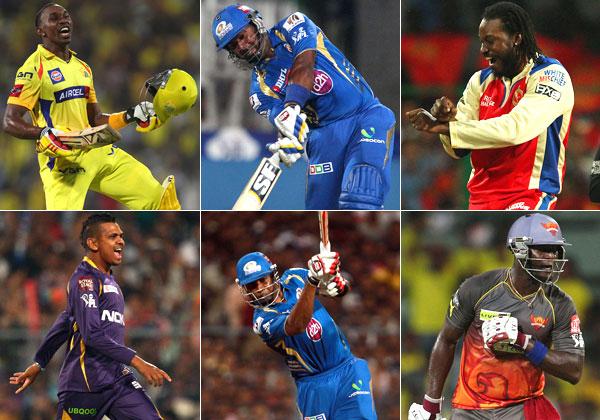
Cricket’s governing bodies must move quickly to close the wage gap in the international game or risk a mass exodus to domestic Twenty20 leagues, the MCC world cricket committee has declared.
Following its annual meeting, held in Sydney on Tuesday and Wednesday, the committee used the contrasting examples of the Bangladesh all-rounder Shakib Al Hasan and the England wicketkeeper Jonny Bairstow to highlight the vast discrepancies in player wages around the world.
It also discussed the fact that underpaid players will be more susceptible to the lure of corrupt approaches from would-be spot-fixers.
Shakib told the committee, which features the likes of Ricky Ponting, Brendon McCullum and Kumar Sangakkara, that numerous younger Bangladesh players were no longer viewing Test cricket as their goal due to the greater financial security afforded them by T20.
“We’d love to see the ICC get more involved in making sure the money goes where it should go – to players,” Ponting said.
“It’s also about understanding that domestic T20 tournaments are giving players almost an easy out to not represent their country and be remunerated in a better way to play those domestic tournaments. The IPL is a big, powerful beast that has probably been the contributing factor to other T20 tournaments around the world. You can’t blame players for playing in tournaments like that, some of the countries we’re talking about and the dollars guys are on to go and play in the IPL versus play the whole year for their countries is chalk and cheese.
“That’s where it’s important to ensure some of these payments even up somewhere. You don’t see English or Australian players not representing their countries to play the IPL, and that’s because they’re remunerated well. So it’s about making sure we have the best players playing Test cricket for the majority of the year and also getting them on long-term national contracts as well so [there’s not] the temptation to go and play to have some security for the back part of their lives. Making sure the contracts are closer to the Australian or English player and so lessening the opportunity for those guys to leave and not want to represent their country.
“Shakib spoke about coming from Bangladesh and some of the issues and dramas they’ve had over the years but he also spoke about the ICC needing to take control of where the money goes because he knows a lot of money is going to the right place but it’s not getting through to the players the way it probably should.”
The vastly contrasting levels of remuneration from country to country were highlighted in an ESPNcricinfo investigation in October, which showed that Australia’s captain Steven Smith stood to earn US$1.469 million in 2017, while his Zimbabwean counterpart Graeme Cremer would earn a mere $86,000. India’s captain Virat Kohli would pull in approximately $1 million for 2017, while the coach Ravi Shastri collected an annual salary of $1.17 million.
Wage imbalances were also addressed in the context of the women’s game, which has grown exponentially in terms of exposure and marketability in recent times, underlined by the success of last year’s World Cup in England and the continuing expansion of the WBBL in Australia.
While encouraged by these points of progress, the MCC committee’s members noted that the game’s richer countries, England and Australia in particular, were streaking ahead of others in terms of wage growth, and that the WBBL and the English T20 Super League needed to be recognised with distinct calendar windows akin to that for the IPL. (ESPNCricinfo)







